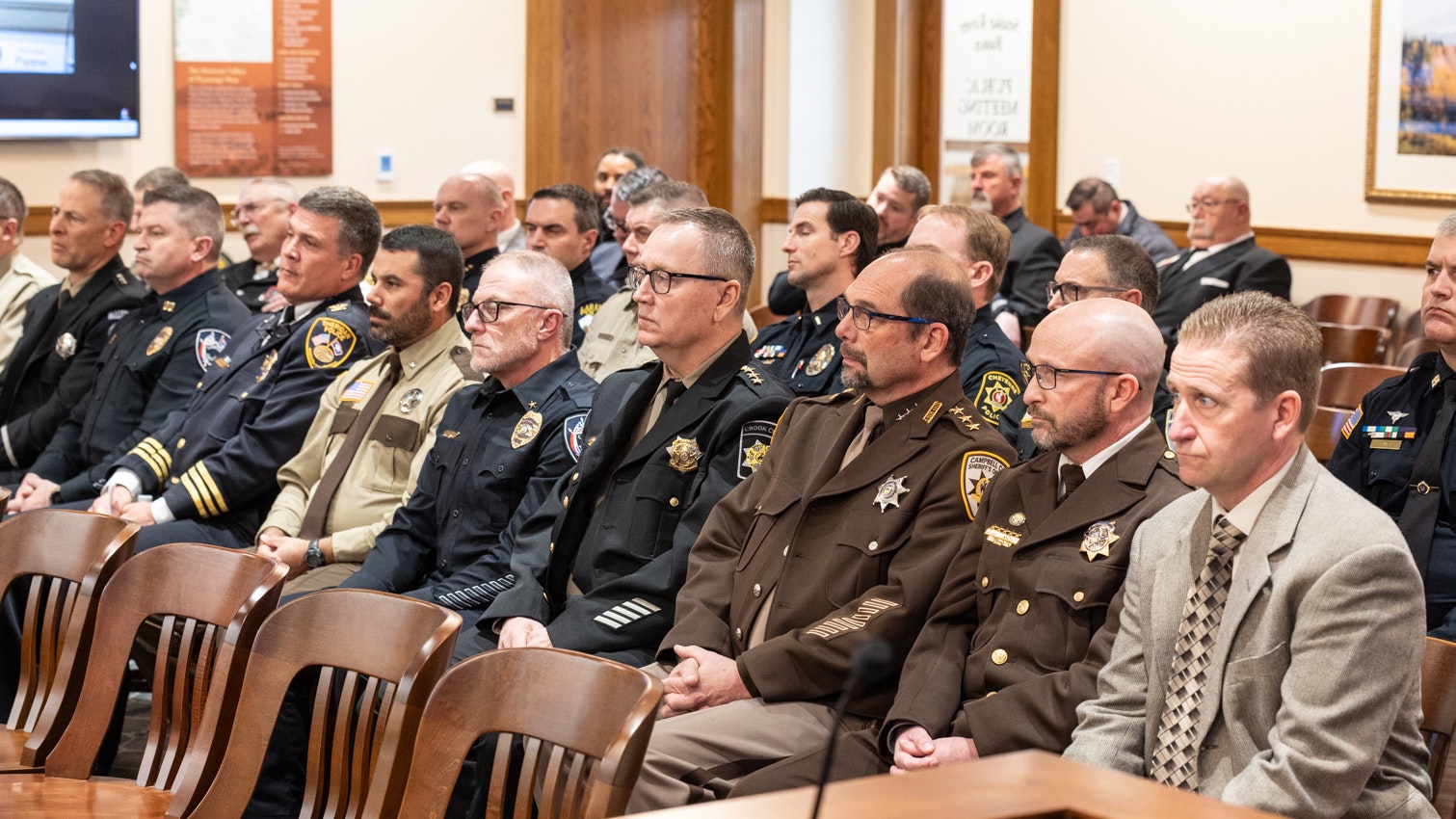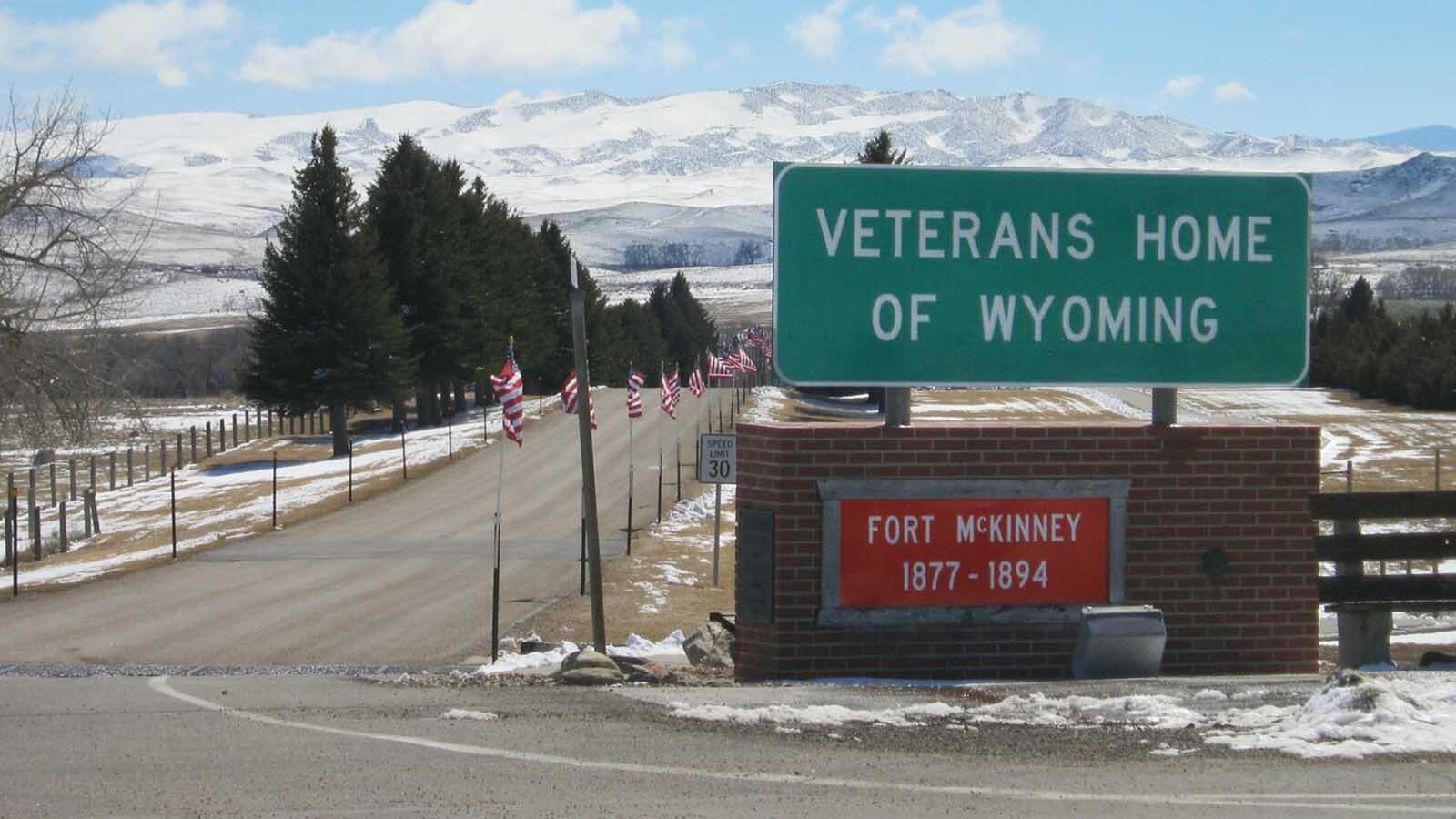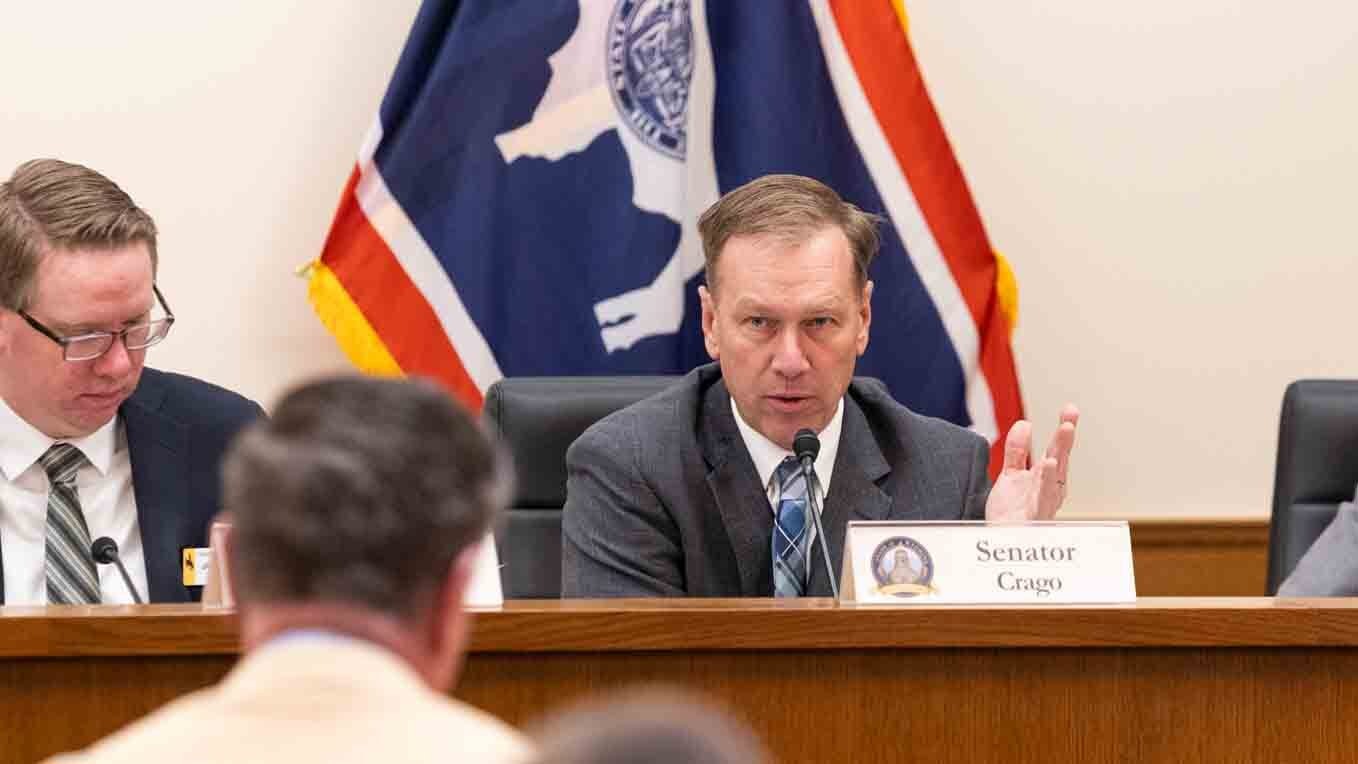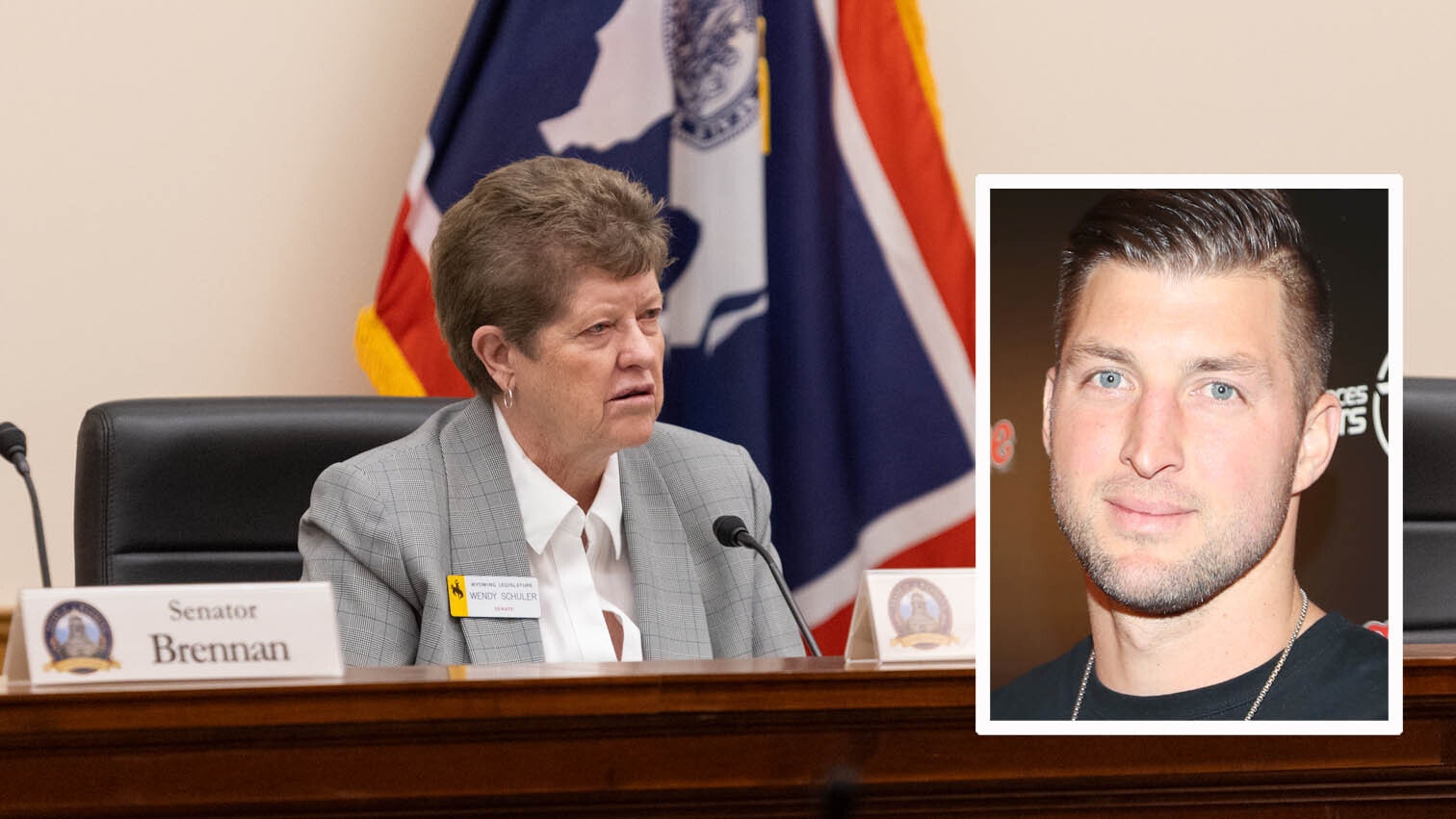In the final days before Wyoming’s primary election, state Rep. Clark Stith, R-Rock Springs, is playing hard ball in his reelection campaign, saying his House District 48 opponent shouldn’t be eligible to vote.
Over the past week, Stith has been engaging in a back-and-forth with Secretary of State Chuck Gray over Gray’s interpretation of a 2023 law that prohibits registered voters from changing party affiliation after the candidate filing period opens.
Gray spearheaded the House Enrolled Act 70 law, which was designed to prevent the practice known as “crossover voting,” when a voter switches party affiliation to impact the result of another party’s primary election.
This was part of an effort by supporters of the bill to prevent Democrats and Independent voters from changing their party affiliation to vote in Republican primaries, something some have claimed impacted the result of the 2018 Republican gubernatorial race.
Stith told Cowboy State Daily the basic purpose of this law "was to prevent people who really belong to some other party from pretending to be Republicans during a primary election."
You Can Run, But You Can’t Vote
Stith contends that the 2023 change also means that in addition to limiting party affiliation changes to before the candidate filing period, it also applies to registering to vote overall. That means anyone who registers to vote after a candidate filing period opens should not be allowed to vote in the Aug. 20 primary, including newly-turned 18-year olds.
This would include his Republican primary opponent Darin McCann.
Since McCann didn’t vote in the 2022 general election, he was automatically cleared from the state’s registered voter rolls, per Wyoming law.
According to data from the Secretary of State’s Office, McCann didn’t register as a Republican until May 22, about four days after the candidate filing period opened. He registered his campaign three days after that.
Previously, McCann previously registered as a member of the Constitution Party in 2020, according to Secretary of State’s Office data.
McCann told Cowboy State Daily that Stith is doing “dirty deeds” with this effort and making a “radical interpretation” that “should really hurt him with his liberal supporters.”
“If he gets his way, the election will have to be thrown out,” McCann said. “People who affiliated in violation of his erroneous interpretation have already been voting early. What do we do with their votes?”
McCann also brought up Stith’s past support for former congresswoman Liz Cheney. During Cheney’s 2022 campaign, which Stith was involved with, she sent out mailers explaining to voters how they could change their party affiliation.
“Now, he's trying to get his primary opponent thrown from the voter rolls just four days from the primary election,” McCann said. “Lawfare is the way of the left and it should never be tolerated in Wyoming.”
Stith does, however, believe McCann is eligible to be a candidate.
His argument is that unregistered voters who register after the filing period can claim any party affiliation, which could potentially lead to those who have let their registrations lapse to basically become crossover voters.
McCann disagrees and says the law was only intended to address people switching parties.
“There is a legal difference,” he said. “Clark is trying to remove everyone from the voter rolls who may have been unaffiliated prior to the crossover date.”
Crossover Drama
Stith believes Gray is directing “hundreds, if not thousands of voters” to vote illegally in the upcoming election. In a letter sent to Gray on Wednesday, he urges him to change his viewpoint on the issue.
In his two letters sent to Gray over the past week, Stith argues that HEA 70, legislation he spoke and voted in support of, stipulates that someone who registers to vote after the filing deadline can be considered an “elector,” but should not receive a partisan ballot, as he believes this is prevented under the law’s definition of “elector.”
In his arguments to Gray, Stith points out how an unaffiliated but registered voter is not allowed to change party affiliation after the filing deadline and thus cannot vote in a partisan primary.
Stith also believes the law prevents new 18-year-olds from participating in a primary election if their birthday hits after the candidate filing period opens. Although he finds this to be an unfortunate result of the law, Stith said all of these conclusions must be read as such.
“I understand that you and the county clerks do not want this to be the answer,” Stith writes. “Executive branch officials, however, do not get to vote on what a statute means. That is the Legislature’s job.”
Stith’s opinion runs contrary to multiple voter rights groups that expressed concern during discussions on HEA 70 that it would prevent new voters and those who turn 18 after the candidate filing period from voting.
Gray’s Response
These interpretations contradict the decision Gray came to in his October 2023 memo sent to the state’s 23 county clerks, where he said that unregistered voters should be allowed to cast ballots in the primary election. The county clerks have supported this interpretation.
“I hereby direct and instruct each of you to permit an unregistered elector who otherwise meets the qualifications to register to vote, to declare an affiliation with a major political party upon registration, during the period for which party changes are otherwise prohibited,” Gray says in the memo.
Gray and Malcolm Ervin, Platte County clerk and president of the County Clerks’ Association of Wyoming, responded to Stith in an Aug. 9 letter that HEA 70 did nothing to change the laws on the rules and processes for new registrants to vote and affiliate with a political party in Wyoming.
In short, they see those who register and affiliate to vote after the deadline as an entirely different class of people as those who are already registered.
Gray told Cowboy State Daily he also took Stith’s first letter as a threat of legal action.
Stith is already representing two other Rock Springs lawmakers in a lawsuit against the campaign arm of the Wyoming Freedom Caucus for political mailers it put out.
“I’m deeply disturbed by Rep. Stith’s inference that he would file another legal action — this latest legal action presumably being an attempt to invalidate the results of the election because his opponent is legally allowed to cast a ballot,” Gray said.
On Wednesday, Stith responded to Gray’s letter, saying that the new law includes people who “declare” their party affiliation for the first time.
“The world ‘declare’ has to mean something,” Stith wrote.
Stith also believes Gray has been keeping his interpretation under wraps and that he and his staff met his demands “with polite intransigence,” he wrote in his Aug. 8 letter.
But that’s not exactly the case.
Although Gray never put out a formal public statement specifically addressing the issue, he gave his stance on the topic during a legislative committee meeting in October 2023, and also provided his perspective while commenting on legislation related to the matter during this year’s legislative session.
The Race
Stith, the speaker pro tempore, is running against McCann for reelection to a full fourth term in office.
McCann aligns with the farther right of the Republican Party and supports issues like term limits. He has publicly criticized Stith for what he sees as him not supporting Second Amendment rights enough.
McCann has also openly embraced the support he has received from Make Liberty Win, a Virginia-based conservative group that spent more than $370,000 in Wyoming elections this year.
Some Republicans like Rep. John Bear, R-Gillette, distanced themselves from the group after it was revealed a Wyoming chapter associated with the group supports the legalization of marijuana.
Leo Wolfson can be reached at leo@cowboystatedaily.com.





